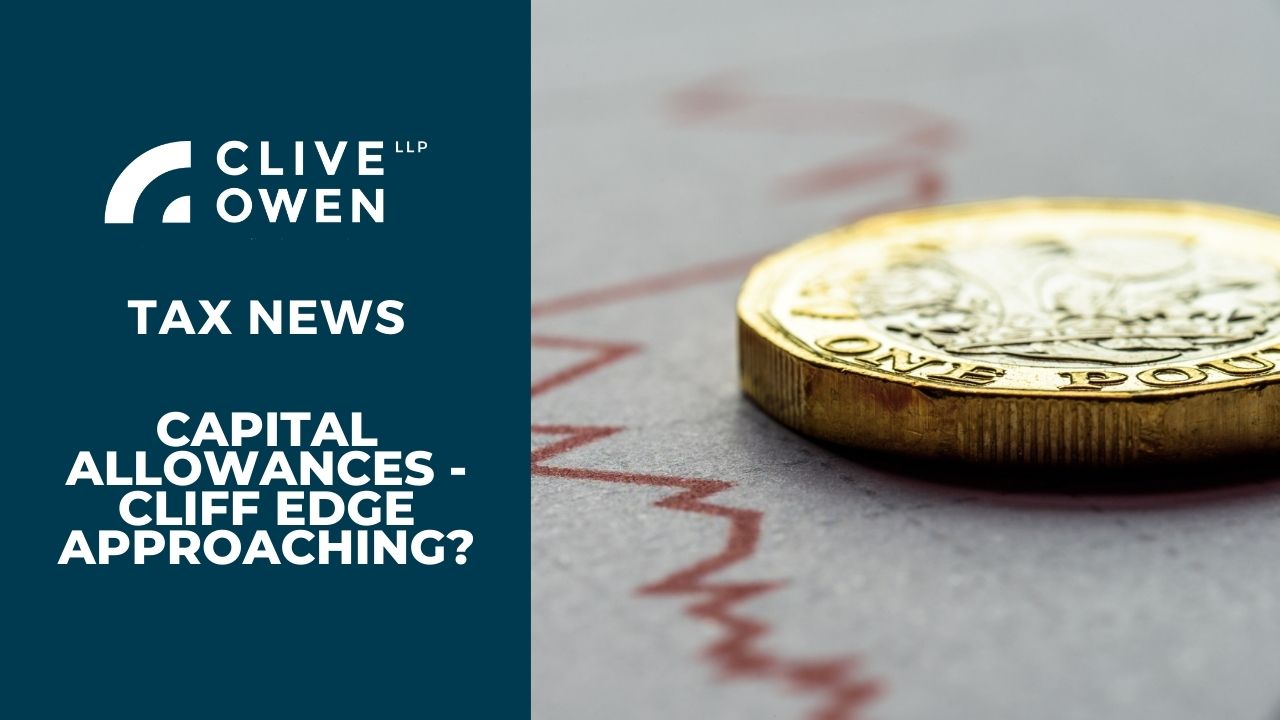
Date posted: 29th Sep 2020
Breaking news update – Government extends £1m Annual Investment Allowance cap to 1 January 2022
The Government has extended the £1m Annual Investment Allowance cap to 1 January 2022. The original £1m cap was due to reduce to £200,000 on 1 January 2021. The move is intended to boost confidence as companies look to weather the pandemic and plan for the future.
*Original Article*
When a business buys plant and machinery, the business’ depreciation policy is ignored for tax purposes, with relief given via the capital allowances legislation.
The legislation on capital allowances is complex but there is an allowance (the annual investment allowance or “AIA”) which allows a business to potentially claim a 100% write off for the acquisition of plant and machinery, in the year that the business acquires the plant and machinery.
As things stand today (September 2020) a business can potentially claim a 100% write off on up to £1m of expenditure on plant and machinery. This AIA allowance can vary depending upon the business’ year end but would be no more than £1m.
The accountancy profession was anticipating that there would be an announcement at the Autumn Budget regarding the maximum level of the AIA going forward, as this is expected to drop to £200,000 from 1 January 2021. However, with the Budget being pushed into 2021, it looks increasingly likely that the £200,000 maximum AIA will be the case from 1 January 2021. This means that businesses that are looking at significant expenditure on plant and machinery in the next few months, could be better off, by advancing the expenditure.
Example
Joe Bloggs Limited (JBL) is a company operating within the manufacturing industry.
JBL has a year end of 31 December 2020 and wants to acquire some new machinery for £600,000 soon. JBL has acquired no plant and machinery in the year thus far.
If JBL acquires the machinery ahead of 31 December 2020, they would be able to write off the entire £600,000 expenditure against their tax adjusted profits. This would reduce the tax bill due on 1 October 2021 by £114,000.
If JBL delayed the expenditure until January 2021, then the company would only be able to write off £272,000 of the expenditure (£200,000 as AIA and 18% of the remaining £400,000 balance). This would reduce the tax bill due on 1 October 2022 by £51,680.
Of course, eventually the tax relief will eventually be achieved will be the same (albeit over several years and of course, assuming the corporate tax rates remain the same) but from a cashflow perspective, delaying the expenditure could mean a larger tax bill in the immediate future.
Given the complexities surrounding the AIA, we would recommend that professional advice is taken before expenditure is incurred. Our business tax advice team is here to help and can be contacted at here.
Read more below:
Read more articles from our October 2020 tax news below:
- Still considering an electric company car?
- Errors in furlough claims
- Chancellor’s Winter Economy Plan
- Capital allowances – cliff edge approaching?
- Unlock funds within your company – make a R&D claim
- Retirement age and pension planning
- Get ready for leaving the EU on 1 January 2021



